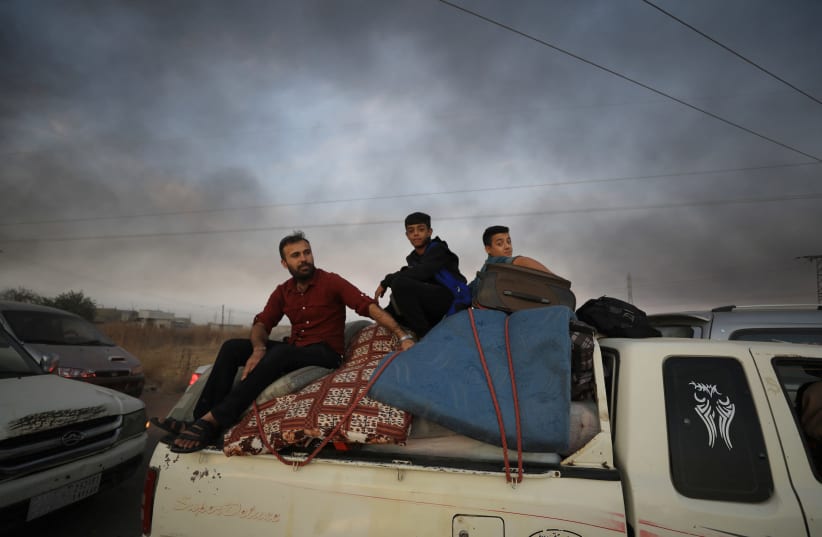On Saturday refugees huddled in tents, their new homes, in northern Iraq, after fleeing relentless bombing and attacks by Turkey and its Syrian rebel extremist proxies in Syria. Up until October 6 they were living a peaceful life near pastoral landscapes, confident that the US flags they saw adorned to military vehicles that drove by from time to time would keep them safe. Then the United States backed a Turkish attack on their border towns by opening the airspace to bombing. On October 17 the US signed on to a Turkish pause in military operations until the towns are cleared while Ankara threatens to “crush the heads” of those who resist.Fearful of having their heads crushed, or being dragged to death as happened to the unarmed female politician Hevrin Khalaf on a nearby road, more than 200,000 people have fled the war made possible by the US decision to withdraw and unleashed by Turkey on October 9. Up to 1,800 of the people found refuge in the Kurdistan region of northern Iraq on Friday. Poor and unable to carry much from their homes they told researcher and photographer 'A' their stories in an article at the Middle East Center for Reporting and Analysis.“We went to an urban area,” one man said, describing the relentless airstrikes and artillery attacks along the border. “Eight of our relatives were killed in the last days of airstrikes on Sere Kaniye.” For three days the family lived in the open before securing transport to northern Iraq. They had only one request to the world ‘Stop Turkey, stop the killing, provide humanitarian aid.” But there is no aid in Syria, the UN and other organizations have been slow to respond to the attacks on towns and cities along the border. The UN and NATO only asked for “restraint.”
Other families from a town named Ger Balat said they saw bombing the first days of the conflict on October 9, just days after the US decided to withdraw and said Turkey was going to launch an offensive in the area. Their lives turned upside down in moments by the us decision, the families had to escape and pay to get to the border. In some cases smugglers helped people cross, charging thousands of dollars to people whose average wages are very low. “If the situation gets better we will be going back but as it is now we will not go back,” one woman told K.Another man who arrived to a came near Bardarash in northern Iraq’s Kurdistan region said that the situation along the border in Syria is very bad. “My message is that they should stop the [attacks] and let our children go back to their school. Please help the Kurds, Kurdish people are good and they need your help. Kurds have rights.”So far the US, which had been helping to stabilize eastern Syria, does not see it that way. There is no discussion of rights for Syrians under bombardment, there is no attempt to protect them or monitor what has happened to them. The US has done nothing to protect or aid those civilians in areas that were for years hosting US military bases and outposts. That is the thanks that the US administration has given the people of eastern Syria after five years of working with them against ISIS. Their homes are destroyed, their children scattered to refugee camps and all that they had tried to recover after the war on ISIS trampled under tank treads and looted.Refugees call on world to stop Turkey’s airstrikes in Syria
Fearful of having their heads crushed, or being dragged to death, more than 200,000 people have fled the war made possible by the US decision to withdraw.
